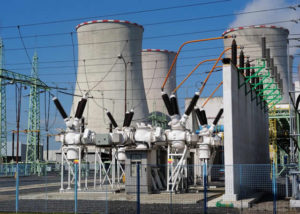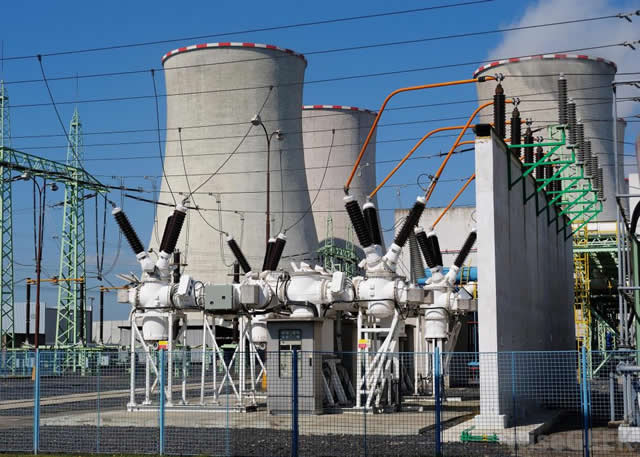 EVERYWHERE you look, Nigeria’s power supply outlook paints a picture of paralysis. A report on Monday that at least four states were in total darkness following power grid failure is only the latest in an endless cycle of bad news. Unless President Muhammadu Buhari and his Power Minister, Babatunde Fashola, devise new strategies, the dream of turning around the economic recession will remain illusory.
EVERYWHERE you look, Nigeria’s power supply outlook paints a picture of paralysis. A report on Monday that at least four states were in total darkness following power grid failure is only the latest in an endless cycle of bad news. Unless President Muhammadu Buhari and his Power Minister, Babatunde Fashola, devise new strategies, the dream of turning around the economic recession will remain illusory.
Some 16 years after the government began splashing billions of dollars on the electricity power sector, the industry is still in the doldrums. Whereas total installed generating capacity is over 5,000 megawatts, actual supplies have been hovering around 3,000MW in recent times. In March, generation dropped from 3,207MW to 1,233MW as the country grappled with vandalism of gas supply infrastructure by militants in the Niger Delta area. The dysfunctional nature of the Nigerian state is playing out tragically: while other countries have privatised and reaped immense benefits in new investment, jobs and infrastructure, our flawed sale of state-owned power assets in 2012/13 has saddled us with continued erratic power supply.
According to a report by PwC, the global consultancy, Nigeria’s power sector is beset by lack of investment in generation, transmission and distribution; over-reliance on thermal energy; sabotage and vandalism as well as poor security and effective regulation. Of the 25 functional power plants in the country today, 22 are gas-fired thermal power plants and three are hydro-powered, although four new hydroelectric plants are under way, according to the Presidential Task Force on Power.
Having failed to diversify by harnessing solar energy, wind and coal, we have become vulnerable to militant insurgency in the oil-rich delta area where vandals have denied the plants of gas supply and reduced available power to 1,580MW last week. The Nigerian Electricity Regulatory Commission website recalled that total energy at its peak in the week to June 12, was 2,591MW, while off-peak power distributed was a mere 1,547MW. In the previous week, they were 2,992MW and 2,000MW respectively. Such a dismal power output cannot sustain an economy that the World Bank estimated to have a Gross Domestic Product of $568.51 billion in 2014.
The paralysis is palpable. The sole transmission facility, the Transmission Company of Nigeria, is beset by crisis. Powerful forces in the government and the National Assembly are determined not to renew the management contract of the Canadian firm, Manitoba Hydro International, which expires this month. Their preference for Nigerian managers is fraught with problems as there are fears concerning their expertise and the ever-present bogey of corruption, nepotism and politicisation of positions in a sub-sector where only technical and managerial competence should count. Even here, while Manitoba says it has raised transmission capacity from around 4,000MW to 5,074MW, it said sabotage of gas through the Escravos pipeline has led to the loss of 470MW of power daily. Recently, the House of Representatives Committee on Power joined forces with the vested interests that have laid mines on the path of the managers since they took charge, by calling for a severance of the management contract. Earlier in January, the Senate claimed to have uncovered “illegalities” in the management contract that was initially to run for three years to July 2013, but was extended for another year.
In May, the Association of Nigerian Electricity Distributors said it was being owed N78.7 billion by federal, state and local governments, with the military formations alone owing almost N60 billion. What it did not address was the veracity of the claimed debts, which are notoriously based on arbitrary estimates that are hotly disputed by consumers, corporate and individual. In November 2015, the National Association of Energy Economists, disputing claims that 45 per cent of the populace were connected to the national power grid, said that 75 per cent of Nigerians were actually without access to power due to distribution inefficiencies. Meanwhile, vandalism and attacks on power and gas supply facilities by criminals operating in the Niger Delta region have continued to disrupt generation, transmission and distribution.
The challenge now is to partner the private sector to secure massive foreign and local investment to diversify our energy sources. Some 37,135MW of South Africa’s total 48,193MW capacity come from coal-fired plants. In India, 60 per cent of its supply is coal-fired. We should diversify our energy sources to end the over-dependence on thermal power like United Arab Emirates that is moving away from dependence on 90 per cent thermal-powered plants through private sector investment of $100 billion between 2015 and 2020. Nigeria is said to have up to two billion metric tons of low sulphur coal that can be exploited for power. Projected to provide 11 per cent of global power by 2050, lower costs and lower greenhouse effects are also attracting investment in solar power.
The bungled privatisation effectively denied Nigeria of the targeted benefits of the Electricity Power Sector Reform Act 2005, such as massive foreign direct investment, job creation, technology transfer, industrial stimulation and a more competitive economy freed from inadequate and erratic power supply and high energy costs. A report by PwC, said that labour productivity in the electricity sector more than doubled in the first six years after power sector privatisation in the United Kingdom in the 1990s; output rose by 20 per cent; unit costs fell by 50 per cent, while prices fell by 20 per cent. Ours has been a harvest of tears.
Fashola must now think outside the box. The planned privatisation of the 10 plants of the National Independent Power Projects provides the government an opportunity to bring in authentic global players who will generate FDI, jobs, technology and skills. Efforts should be made to tap nature’s endowment with sunlight and land mass by investing in solar and wind energy. In the short-term, the government should secure the pipelines and other facilities, enforce the metering scheme within a few months and squeeze out the hopelessly incompetent operators to save an economy that is on the cusp of a recession.







